
This review may contain spoilers
Not My Sky
Having watched the entirety of the show now I can confidently say that this was neither my sky nor a show I enjoyed. I liked a handful of scenes and some of the visuals (Thomas and TeeTee in particular), but that’s all.To keep it short I’ll try to simply list my issues with “Your Sky”, going into detail only when it’s necessary.
- Not a single member of the young cast can act (which is not a huge surprise in a BL) and delivery of most lines was bad (Thomas was stiff like a wooden board, Kong can’t emote, Save had exactly one pose – that of an insufferable brat – and he was striking it in every scene, TeeTee was all cute smiles but no substance etc. etc.).
- Episode 1 was nearly devoid of content, I’m still amazed I returned for ep. 2.
- The fake relationship ploy was just as dumb and unnecessary as it was in “2gether” (to name just one show which used it and failed at it – although there it was additionally offensive and homophobic).
- I don’t understand how with 12 episodes and 3 couples to develop we got so little done with Real and Hia and even less with PunLee and Klaijai. What’s the point of dragging out the conclusion of a romantic plotline of Real and Hia till ep. 12 or introducing PunLee and Klaijai as late as in ep. 8 (of 12)?
- The main couple plotline – also stretched beyond belief – became boring very quickly, with far to many filler scenes and lack of development. I watched the uncut version – the one including nudity and more intimacy – but don’t think that it made the series nor the main couple plotline more interesting.
- As for Teerak’s homophobic father and his antics in ep. 11 I’ll repeat what I wrote in that episode’s review: it was a blatant defense of homophobia. I'm okay with homophobic characters in BL, including them in a story is acceptable for sake of realism or to create an obstacle for a same-sex couple to form a relationship or stay together. What I'm not okay is having such a character presented as being justified, having legitimate concerns or voicing an opinion or point of view in a debate. Homophobia is evil, plain and simple, like racism or antisemitism. Any show, not just a BL, cannot leave any doubt about it. Homophobia is never justified and is indefensible; presenting it in any other way as literal evil (regardless of where it comes from - outright malice, ignorance or stupidity, it doesn't matter) is not allowed. Ep. 11 did exactly that, presenting Teerak's father as an idiot, but acting in good faith (actually acting out of selfishness, which the show also failed to point out) and going so far as defending him: Teerak's mother saying "I know you’re disappointed. So am I" was inexcusable (children are not property of their parents nor can be held hostage to expectations and wishes of their parents). This is a show made in 2024, but in this regard it sounds like one of those idiotic early BL's from 8-10 years ago.
I did enjoy the bar fight scene between a transphobic drunk (portrayed, I believe, by the assistant director himself) and some prominent drag queens; that was one of the very few moments when I laughed wholeheartedly.
Was this review helpful to you?
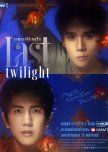
This review may contain spoilers
Awesome show – for about 90% of the time
===This section is spoiler-free===I liked “Vice Versa” and I liked JimmySea even more. Now I adore them. Their performances in “Last Twilight” are great and a must-see for all BL fans. The show itself is wonderful, with a well-crafted script, which gives a lot of time for the development of characters and their relationships. This does not mean it’s a “slow burn”: the series has a very strong start with a well done introduction of the cast and characters; it stays smart up until the last minutes of ep. 11. What follows – the ep. 11 finale as well as ep. 12 – is a big letdown; I was baffled by how bad, in comparison to the rest of the series, is was. More on that in the spoilers section below.
The script and JimmySea’s chemistry resulted in several great, deeply emotional scenes, which used Day’s blindness in a clever way; this was particularly well done in the final scenes of ep. 4 and ep. 9 (probably the best episode of the show).
“Last Twilight” has a great soundtrack – all 5 songs performed by GMMTV artists are very good, “ภาพสุดท้าย” by Jakrapatr Kaewpanpong is by far the strongest of them (btw: although the title of this song in English was given as “Last Twilight”, Google Translate and similar apps say it’s actually ‘last picture’ or ‘final image’ – which makes more sense than ‘last twilight’). Sadly the same cannot be said about the music used in the show, which is very uneven. The aforementioned final scene of ep. 4 has a great score, but there is a lot of scenes with needlessly loud and “dramatic” music used to underline their importance and/or generate an emotional response from the audience (as if the producers were not sure whether the audience will be intelligent enough to recognize what to feel while watching these scenes). Fortunately there is plenty of quiet moments and scenes to balance those loud and noisy ones.
Rating “Last Twilight” is tough as for almost 11 episodes it’s great, a 8.5 or more, but gets to 7.0 or less in the last minutes of ep. 11 and afterwards. As a JimmySea fan I’m giving it a 8.5 and regret this is not fully deserved (however a 8.0 would be unfair).
===Warning: spoilers below===
No idea what happened there, but minutes before ep. 11 ended the show stopped making sense to me. Maybe P’Aof and other showrunners decided that the “curse” of the penultimate episode must show itself and spoil the fun, maybe they wanted to generate drama, maybe something else pushed them to it – they made the main couple break up. Storywise it made no sense and basically it came out of nothing: up until that point Mhok’s and Day’s relationship was getting stronger and better, with virtually no sign of weakening – not to mention a break up. Day adjusted to being blind, Mhok got a new job and they seemed to be on their best way to be a stable, happy couple, developing their relationship with time. Where did the break up come from? I know that a “reason” for it is given in ep. 11: Day feels that Mhok “pities” him (which, for whatever reason, Mhok confirms in ep. 12), but it makes even less sense. How come it’s “pity” and definitely not love nor fear of losing Day (as he lost his sister) that made Mhok want to stay with Day instead of becoming a chef in Hawaii? Is there a difference between love, fear and pity or is the script deliberately confusing in this regard – because a pretext for the break up was needed? Note that Day broke up with Mhok within minutes of finding out about Mhok not taking the job in Hawaii – there was no discussion, no talking it over, no build up; Day made a 180 on Mhok and told him to go away. They both still loved each other (as we are told later), but had no contact with each other for 3 years, with Day blocking Mhok on social media. Once they meet after that time, however, they … become a couple again. What changed during those 3 years? How did the main characters change? What happened that Day agreed to be with Mhok again? Is Mhok living and working on Hawaii, visiting Day from time to time – is that the arrangement by the end of ep. 12? If so, why wasn’t it possible 3 years earlier? And why did he still fear Mhok would “pity” him? It may seems odd to dwell on the “pity” issue, but since this is the only reason for Day breaking up with Mhok (and the show having a time jump) – it should be explained. No explanation is given, however, and the issue is not resolved. 11 episodes of building a relationship and a few minutes to ruin it, because drama was needed; that’s some really sloppy and lazy writing. I’m not saying that Day and Mhok could not break up – I’m saying that a development like this needs to be justified, make sense in the show as well as fit the characters. Note that Day matured a lot from a spoiled, somewhat angry brat in ep. 1 to a self-aware adult who accepted his blindness in ep. 11 – and then he turned back into that brat to dump Mhok; this radical regression was necessary, as the mature Day from ep. 11 wouldn’t break up with Mhok.
There are similarities between ep. 12 of “Last Twilight” and ep. 10 of “A Tale of 1000 Stars”: the main couple breaks up/separates for a longer time, but later reunites; the separation/break up happen for no good reason and serve no purpose – the characters don’t develop, change nor become more mature. Even if they wanted – they couldn’t, as the years of separation happen entirely off screen. Tian from ATOTS “had” to obey his parents and go to study in the US; this is the same Tian who ditched his parents in ep. 1 and showed no sign of obedience or respect for them for the entire series – he became “respectful” only when the script needed it, probably because someone decided that splitting the main couple will increase drama (who could forget the tear-jerking airport scene?). Not only was it useless storywise, but also seemed disrespectful towards the audience: the love story was slowly developed over 9 episodes only to be interrupted with a pointless time jump of 2 years after which … we got the same characters as before the split. The same happened in “Last Twilight” and I’m beginning to suspect that P’Aof loves those pointless time jumps (remember last episode of “Bad Buddy”?). What a disappointing way to end a great show.
Was this review helpful to you?

This review may contain spoilers
Failure on all fronts?
A number of things went wrong with this show making me enjoy it less and less with each episode, and although it’s not all bad it fails far too often to be considered good or even decent.- The show tried to be too many things at once and touch on too many issues. If you’re making a 14 episodes long series you don’t have enough time for storylines of three couples, political intrigue, revenge, action, comedy and social issues. If you try to force all of that into a script, some or all elements will suffer – as they do here.
- There are too many characters – hence most of them, including Khanin and Charan, are underwritten, even one-dimensional (with Ramil and Wasin being notable exceptions), and quickly become uninteresting and boring. Also, I’m not sure the show has a main character. Is it Khanin, as the English title would suggest? But the title is misleading and makes no sense: the royal competition is to select the next king (not prince) and Khanin already is a prince when the show starts (he does not become one during the show). Furthermore, there’s plenty of POV characters and the romantic plotline of Khanin and Charan is often sidelined by unrelated events.
- Emotional bonds between characters are underdeveloped (Calvin and Jay being the obvious example, but this goes far beyond romantic relations) or are missing altogether (Khanin and Tharin have almost no connection nor contact for most of the show – a tad surprising given their situation). Also, after 14 episodes I can’t tell why Khanin and Charan became a couple nor why they fell for one another - it sort of just happened, for no reason and with no buildup.
- Both aforementioned problems are not solved nor helped by weak performances given by most of the cast – Nhing Nirut Sirijanya (king Thipokbowon) and Wit Phutharit Prombandal (Wasin) being the only exceptions. Performances of Zee and Jimmy were so bad, that they hurt the show as much as the poor writing of their characters did.
- Tonally the show is all over the place and almost every issue raised by it is either treated in a superficial way (like role of women in society and politics or environmental and social costs of maintaining economic growth) or the presentation is incomplete and unfinished (like reforming Emmaly’s political system); both these issues stem from the show trying to be too many things at the same time.
- Worldbuilding is derivative, unimaginative and unoriginal. We have heirs of clans Griffindor and Slytherin as well as a token girl armed with a bow fight in the Hunger Games for one of their fathers to become king of (South-East Asian) Wakanda; later it turns out that Griffindors are more like Lannisters from GoT. Also, the show’s fairytale world feels tailored for international viewers, with Latin alphabet and English language popping up in the weirdest places – even DNA test results, displayed to a room filled only with Emmalians, are in English. One thing I didn’t understand with that is why characters in London speak English, but characters in Emmaly don’t speak Emmalian (they speak Thai).
- There’s far more cheap glitz than actual glamour. The opulent costumes are somewhat impressive, but that’s about it when it comes to pomp. Instead of exotic royalty and fairytale aristocrats with noble visages we got commoners with tired faces; instead of London we got a Thai resort pretending to be the UK and some aerial footage; instead of a royal palace (where more than half of the interior shots were done) we got "La Chapelle", a "luxury wedding venue" with a horribly trashy look and outside shots of an English country house – with other locations being rather normal (a beach house is a beach house, Assumption University in Bangkok poses as "Morpheus School of Arts" etc.). Quite unremarkable for a show with a budget of 120 mil THB. The one place I really liked seeing were the Phuchongphisut caves – a well-chosen and skillfully filmed location.
If I was writing TNP’s script, I’d make Khanin and Ramil both main characters and the main couple. They’d start as rivals, then go to enemies, later friends and finally – boyfriends. The rivalry of their houses would drive their personal rivalry and even enmity, the realization that they’re in the same situation (as pawns in a game for power and targets for a vengeful Wasin) would get them closer, the need for understanding, support and acceptance would push them even closer. Ramil would start as an apparent supporting villain, slowly revealing his good side, while Khanin would have to discover his darker side in order to survive. Come to think about it, in a scenario like that even Daou’s "I trust you" would make sense.
Was this review helpful to you?
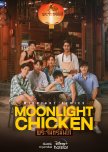
This review may contain spoilers
Three ships in one show – and it works!
Well, to be honest, “ship-wise” it’s ‘only’ 2 ships – EarthMix and GeminiFourth – as First and Khaotung, despite of starring in MLC, aren’t a couple in this series. Still, casting so many good performers in one show says a lot about GMMTV’s faith in the story, direction and cast – as well as the company’s ability to take risks (yes, putting so many of your assets – and popular ships clearly are assets – into one show represents a considerable risk). All of that was rewarded with a show which works very well and has some aspects usually not found in a BL. I’ll try to focus on the most important and best elements of MLC.(1) The show has a perfectly paced and shot introduction, which presents the setting, majority of the cast and their relations in a very effective, almost music video manner.
(2) Characters and story give a very grounded, real life feel – which is often absent in BLs, especially rom-coms. This can, at least partly, be attributed to MLC being an almost classic drama. Humor is used sparingly, there are no scenes played for laughs, no comedic reliefs etc. – there’s no BL “fluff” either. The characters have different backgrounds and life experiences, but all are relatable; it’s also worth noting, that – contrary to many BLs – only two characters are teens, the rest are either young adults or “full adults”. Everyone in the show carries a lot of emotional baggage and faces problems we all understand and/or have experienced: loss of a family member, loss of a loved one, difficult break-up, unresolved past issues, unrequited love, money problems and poverty, job problems, unfair treatment and homophobia, difficult relations with parent and/or guardian, illness and/or disability. Despite of that this is still mostly a story about love – losing it, looking for it and finding it.
(3) The story is presented in a very condensed and clear way; several plots neatly fit into it. A bit surprisingly to me there weren’t too many characters (this is, after all, a series with only 8 episodes and a full cast) – mainly because each character had a specific role to play and did it. There was no drag, no time wasted on exposition or pointless talking and walking around.
(4) The cast is very solid, with GMMTV rolling out not just some of its most popular, but also most talented stars.
(a) Mix does a wonderful job as Wen regardless whether he’s drunk at the diner, passionate in bed with Jim, caring and understanding with Li Ming and Heart, trying to win over Jim or keeping his distance from Alan, while still caring for him. Wen seems the most complete character of the series and a good spirit for Li Ming and Jim – while still having issues of his own. I loved the firm grip Mix had of the character – he portrayed Wen with calm and confidence, which passed over to the character itself. This is by far Mix’s best role so far.
(b) Fourth as Li Ming is great, both as Jim’s nephew, a struggling (but never bratty) teenager, often angry and disappointed with his uncle, but also loving him, as well as Heart’s boyfriend, a teen in love – a love that grew so naturally and quietly that I could only smile and cry watching it. MLC was shot before My School President and the interaction of Fourth and Gemini here explains how we got the great chemistry of those two in MSP: it was there all the time. GemFourth is one of those superior ships like OhmNanon, EarthMix or FirstKhao: GMMTV can bank on and will never lose. Non-verbal communication between Li Ming and Heart was top notch; watch the episode 6 New Year scene to see how two unexperienced amateurs nail it without saying a word – that’s real acting. Most of GMMTV’s “actors” should watch it to realize how ridiculously incompetent they are.
MLC isn’t perfect, but it’s mature and non-fairy tale – it’s a serious BL. I enjoyed it very much.
Was this review helpful to you?
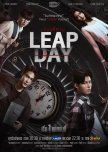
PondGun my day anytime
There is a lot to like here.The show is truly captivating – initially due to its plot and later thanks to good performances.
Furthermore, it is atmospheric and mysterious – due to plot and writing, but also thanks to mostly fitting music (heralded by very strong track used for opening credits) and proper cinematography (including plenty of surprisingly good shots sprinkled throughout the series like little gems).
It is also emotionally engaging – because the stakes are set very clearly and because it (the show) has real heart. This was achieved by decent writing, mostly for the Day-Ozone side of the story (a notable mention for the Night-Dream side is Dream’s phone call with her mother in ep. 12), and – again – very good performances.
"Leap Day" is very good in creating a feeling of hopelessness, of walls closing in, of fighting a faceless and unfathomable dread all alone, of suffocating in an indifferent world, oblivious to ones problems, unable – or maybe even unwilling – to help or sympathize. All these sensations were conveyed masterfully and allowed to highlight the remedies that work, that allow to survive and lead a mostly normal life: determination and support of friends and loved ones.
The cast is small (which I liked) and gave very uneven performances.
I was never a fan of Gun and have criticized Pond’s performances in BLs, calling him stiff, wooden and boring. Here I was very pleasantly surprised by how good they both were. I loved Pond’s Day – strong, determined, honest, straightforward and deeply caring for Ozone, emanating purest warmth while at it. Gun was utterly convincing as Ozone, delivering a complex and difficult performance, very far from a one-note one. Watching both Pond and Gun in "Leap Day" was a treat – the show deserves a good rating for that one aspect alone.
I cannot say the same about neither Dew nor Pahn. Dew gave a subpar, mostly flat performance of an annoying character, who felt unlikable even when he was supposed to be loving and tender. Pahn, whom I have previously seen only once (in "My Love Mix-Up!"), did not impress me with anything; her performance was uninspired and even vexing at times.
The writers mostly did a good job, though at times the show was losing its momentum and felt like dragging for no reason (other than to fill all 12 episodes with something). This is not a critique of all those moments the main characters were walking in circles trying to figure out anything about Leap Day – those moments were necessary and justified. I do, however, believe that some parts of the show, like the lengthy thread of introducing Pon's character (Kit), could have been done differently, preserving the show’s generally good pacing. I have no issues with "Leap Day" leaving us with most questions unanswered and a lot of plot threads leading nowhere/unexplained – all that can be considered part of the show’s mystery aspect. Going a little into spoiler territory I need to voice my biggest complaint regarding the script: Wiwat’s fate. That man should be dead or jailed; instead we see him alive, free and treated with respect.
I mentioned music as an important factor contributing to the show’s atmosphere. While this is the case for most tracks used in "Leap Day", I was not a fan of "อยู่เพื่อรักเธอ" ("Here You Are") sung by "Louis" Thanawin, "Ford" Allan and "Fluke" Nattanon. I like all three of them a lot and have only respect for their work – but do not think that particular song fits this series.
Having said all that I consider "Leap Day" one of those shows where "pros" are so solid and numerous that they clearly outweigh "cons", covering them completely. If you are not convinced by that, just watch it for Pond. It is worth it, the guy can actually act.
Was this review helpful to you?

This review may contain spoilers
Missed golden opportunity
Let’s start with the obvious: vampires – powerful, often immortal, carnal creatures that need to consume blood to survive – are among the sexiest beasts invented by our imagination. Representing a multitude of things considered forbidden and often evil, like unrestrained lust, following animal and predatory instincts, hunting, pursuing and killing prey, evading death etc., vampires are a projection not just of the darker (or even darkest) aspects of human nature, but also of a desire to be truly free, to do whatever we want, with no boundaries nor restrictions. So, in theory, a love story about gay vampires should be awesome, right? Well, in theory – yes. In practice, however, it can turn like MGB did: not so awesome.The good stuff
There’s plenty of things in this show that I liked a lot – mostly the interactions of Mark and Tong, especially once they became an item. Fortunately that makes up a big portion of the series – it is a BL after all (no, it’s not a show about vampires – that’s just a pretext to tell a love story). Joss and Fluke work well together and their chemistry is MGB’s saving grace (that and Joss displaying his flawless physique). Another thing I enjoyed: the OST, consisting of “Closer” by Fluke (heard during opening credits), “Just You” by Joss and “Ever After” by Joss and Fluke. Pretty modest by GMMTV’s standards – and that’s also okay.
Writing
The show’s script is based on two intertwining storylines: Mark’s and Tong’s love story and the golden blood vampire story.
The love story is a variation of a well-known trope of a protector becoming a romantic interest/partner of the person he’s protecting. Inserting a vampire into that pattern doesn’t change a lot – after initial problems Mark becomes a rather traditional bodyguard-turned-lover character. Here’s where the vampire aspect of the show fails the most: once he overcomes his lust for Tong’s golden blood, Mark becomes so mundane that it’s easy to forget he’s a vampire. This is not an isolated case: all vampires in MGB seem weirdly bland, tamed and controlled, turning violent only on the rare occasion of coming into contact with Tong’s blood. Those are not the sexy vampires I imagined that would fit a daring gay love story, passionate, spicy and full of lust – this is a golden opportunity which was missed (or maybe deliberately abandoned). These vampires have been washed and bleached, deprived of feelings and senses – and became boring. Vampirism in MGB is like a curse: an eternal life of feeling nothing. Sure, this image is inconsistent (Thara has a genuine lust for power, Nakan seems to have some emotions and desires, Wan gets all teary in ep. 12 etc.), but heavily influences how Mark is presented and the love story progresses: it’s not taming of a wild beast lusting after Tong – it’s waking up a man’s sex drive and getting it to hum (instead of roar).
Another issue I have with the love story is its length – there simply doesn’t seem to be enough of the story for all 12 episodes. This leads to inclusion of filler elements; some (like most of ep. 4) are dull and unnecessary. This also gives room for subplots, chief among them the Tonkla subplot – which seemed to be important to the writers until they killed off Tonkla in ep. 9. Did it have a lasting impact on the story or characters? Not really.
The second main plotline – the vampire story – is messy, vague and inconsistent. Since MGB is not a show about vampires and this plotline is only meant to provide setting and obstacles for the love story, I’m not bothered by the aforementioned flaws; this is less important than the portrayal of vampires themselves, which I complained about above.
Characters
Both Mark and Tong are written in a proper manner (contrary to some opinions I read on MDL, I didn’t find Tong’s character to be annoying or subpar), fitting the love story plotline. Thara – as a villain – is a bit generic, but passable; revealing her as the main baddy of the show was foreshadowed in ep. 10 by some ominous music, which actually made me laugh. Tonkla is irritating and generally useless; I begin to understand why some comments express regret that Tonkla wasn't paired with Nakan – at least that would give Tonkla something to do in the show. Nakan seemed plausible as a villain, but then ep. 11 and 12 happened. I’m unsure whether that was plain old bad writing or an attempted redemption arc; whatever it was – it didn’t work for me. That character had potential, clearly, but it was wasted – mainly because it wasn’t developed properly. Seeing pictures of Tonkla and Nakan displayed next to each other with flowers in front of them (ep. 12), as for some cherished fallen comrades or good friends, left me with a bad taste in my mouth.
Acting
As much as I enjoyed the Mark-Tong dynamic I have to point out that Joss gave a flawed performance in MGB. It’s something I noticed in ep. 1 and what did not change until the very end of the series: Joss was good at being hot&sexy, cool, manly, funny, caring or vulnerable – basically in almost every scene Mark interacted with Tong; the opposite happened when Mark needed to be serious, angry and “mature” – Joss kept missing the beat, becoming (unintentionally) funny: becoming lifeless and stiff or reciting his lines in a weird, solemn manner (as to underline that what he says is important). Fluke’s performance was much more consistent and without major flaws; same can be said about Um’s performance as Thara. Mond, whom I learned to respect a bit after “Only Friends” (while disliking the show itself and most performances in it), is all over the place here; much of that is due to the writing, but some has to attributed to the performer. Mond seemed sleepy, stoned or bored for much of ep. 1-10 and his face looked swollen – all of which made me think he was having some health issues while MGB was filmed. Fortunately this was no longer the case in ep. 11-12.
Visuals
Much was said about CGI in MGB – and how it (supposedly) was indicative of a low budget. While I wasn’t bothered by the use of special effects nor their quality, I do believe that – with writing adjusted in this regard and consistent use of more traditional means, like filming after sunset, proper lighting, filters and color grading, MGB could have created a better, convincingly “vampiric” atmosphere. Same about locations: while I applaud some choices in this regard (in particular Wan’s flower shop), others were baffling. Speaking of which: what’s with the wedding venues used by BLs recently? First “The Next Prince” located the interiors of the Emmalian royal palace in “La Chapelle”, a “unique luxury venue for weddings” in Bangkok, and now MGB used what seemed like two wedding venues (or just two areas within one venue) in ep. 12.
Final thoughts
Is MGB bad? No, it’s above average – mainly because most of its flaws have nothing to do with the love story while Joss and Fluke work so good together that they sell that story. My biggest issue with MGB is that it could have been much more – given its potential; instead it’s a half-hearted bite: you felt it, but it’s painless.
Was this review helpful to you?
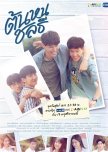
This review may contain spoilers
It has some serious problems, but I liked&enjoyed it
Before I start:1/ I don’t speak nor understand Thai, so I relied entirely on subtitles provided on GMMTV’s YouTube channel;
2/ all my comments and remarks below are about the GMMTV series – I didn’t read the book which inspired the series; for me the series is a completely independent work, not connected with the book, and it needs to stand on its own.
What I like about the series
1/ On-screen chemistry. Toptap and Mike work so well together that I’d be surprised to learn that off-screen they are anything less than good friends. But what I enjoyed even more was the chemistry between Pod and Khaotung; they sold me on Ton and Chon having genuine affection and feelings for one another. It was more than the absence of awkwardness; both actors seemed confident and relaxed in each other’s presence (for most of the time), hence their interactions (including the goofy ones) were believable. We deserved to see more of those two together; we got loads of cuteness and emotions, what we should have gotten more of was boyfriend banter (we got some of that, but more would be nice – Khaotung showed that his Chon can be shy, confident, loving, stubborn and angry, but also very sassy).
2/ Less non-problems than I feared. My prime example is Chon’s reaction to the kiss video in episode 9. Initially I was disappointed and thought Chon reacted according to BL-silliness (by which I mean that characters usually suspect and assume the worst, act without real reason, judge the situation without actual proof, tend to overreact and/or react to things no real person would bother reacting to; also, they don’t talk to each other). Then I watched episode 10 and saw that Chon’s reaction was much more grounded and relatable. Chon recognized Ton as a show-off prone to dumb stunts and actions which would give Chon constant heartache. Suddenly it made sense and the BL-silliness was gone; there was no fake problem – there was a real one and Chon was reacting to it.
3/ Showing homophobia’s still a real thing. We see LGBTQ characters fearful of how their friends and other people would react to their coming out/revealing they are in a same-sex relationship and we see homophobic characters with their stereotypes, prejudice and aggression. Pretending we live in a world were nothing stops LGBTQ persons from having a happy life would be bad. Glad the show writers didn’t do that. That being said:
- the way a gay character was presented in episode 1 (guy who followed Ton and Chon after they had lunch) was appalling and homophobic,
- Ton never apologizing nor even addressing his homophobia was a huge mistake of the writers,
- Chareon getting his wish fulfilled instead of being denied and ignored was an even bigger mistake of the writers – c’mon, guys! if you want to show everyone that homophobia is bad you can’t reward a homophobe!
4/ Very limited side plots. Compare “Tonhon Chonlatee” to, let’s say, “2gether”, where we got 4 couples: Tine&Sarawat, Type&Man, Dim&Green and Mil& Phukong (5 if we include Pear&Boss). Were they all necessary to tell the story of Tine&Sarawat? Did we learn more about the main characters because of these additional characters and their relationships? What purpose in the story did they serve? In “Tonhon Chonlatee” the side characters are acutely aware of their purpose; Ai explaining to Ni, that they are the protagonist’s sidekicks was on point and almost breaking the 4th wall.
5/ Miriam. Once she shows up she does a lot to push the plot forward – which the story needed after the slow-paced first few episodes. The character itself is likeable and a much needed voice of reason.
What I don’t mind about the series
1/ How character development of Ton was handled. The writing is rather basic and often clumsy, with a difficult-to-believe revelation in episode 10, but we also get a clear character arc for Ton. BTW: I liked that the show didn’t immediately explain why and how Ton got the idea of having Chon stay at his place and them two spending so much time together. Ton felt something for Chon and acted on what we were initially led to believe was instinct - I'm fine with that.
2/ Clumsy writing. (i) People condemning Amp after her rant in episode 8 - apparently students carry paper balls with them at all times (ii) The shoehorned beach scene at the end of episode 8 (I guess we needed that to illustrate that Ton made a decision, that from now on – instead of being a homophobe – he’ll fight homophobia, that he’s no longer afraid and so on).
3/ Unanswered questions. (i) How come Ton didn’t recognize Chon in episode 1 and what purpose did it serve? From a story point of view it would be better for Ton to recognize Chon right away, saying something like “Just the person I wanted to see. I’ve missed you so much. Let’s have lunch”. (ii) Who leaked the picture of Ton sleeping in episode 8? Was it Chon (he took the picture)? Was it Pang (she saw the picture and held Chon’s phone long enough to send the picture to herself)? We know why it happened (drama), but how? (iii) Is everyone allowed to see other people’s kites that hang if front of the Sam Muk temple? And to tamper with them? (iv) Don’t Ton’s parents have any social media accounts? Don’t they follow their son?
I can live without knowing these things.
What annoys me about the series
1/ How Ton’s attraction to Chon is explained in episodes 9 and 10. On reviewer (deetsy) addressed this nicely today, so let me quote: “In the end what we got was a homophobic story of "I'm not gay, I just love you". It worked well 5 years ago in SOTUS, but now I think LGBT community moved on past this narrative and deserves something better”. In short: why can’t Ton just be gay or bisexual or pansexual? Why the additional “explanation” that he’s attracted to Chon because they have had a special bond as children? Why the emphasis on Ton not being gay, on Ton “still liking women” and not feeling anything for other men? Maybe there’s something I don’t get about some BL series, but this wasn’t the first time I saw something like this. Did you notice the emphasis on past girlfriends, who don’t even have to appear in the show nor become villains (like Amp), but are casually mentioned? As if the writers wanted to establish that gay characters don’t exist and if two guys get together they are bisexual or pansexual at best. In “Tonhon Chonlatee” this applies not just to Ton, but also to Na, and you can see the same pattern in other series: a boy dating girls until he meets that one special boy he’s attracted to (see both Tine and Sarawat in “2gether”, see Tee in “Cause You're My Boy”, see Knock in “Together with me” and see many others examples).
2/ Chareon’s homophobia and “the baby solution”. Chareon is a homophobe and a domestic tyrant. Everyone is trying to make him realize he can’t separate Chon and Ton nor impose his wish to have grandchildren, but at the same time everyone tries to satisfy that wish: enter Nam and the surrogate mother idea. Why is this even in the show? Why did the writers decide to fulfil Chareon’s wish and disregard basically everything done up untill that point? Chareon was told he can’t force his kids to do his bidding and then he got exactly what he wanted. As much as I enjoyed the first part of episode 10, I was facepalming for most of the rest of it.
3/ Nueng facing almost no consequences for his assault on Chon. Nueng is a would-be rapist and almost nothing happened to him. Ton kicked him once, dragged him out of the toilet and punched him once – that was all, that was the whole “punishment” for what Nueng attempted. I’m not saying we needed a scene of Ton and Chon testifying at a police station, but something should have happened, e.g. Ai or Ni doing their sidekick job and telling Ton (e.g. a day after the assault) that the university announced Nueng was suspended and facing a police investigation. Instead we got Nueng on best-buddy terms with Amp, supporting her lies (I didn’t know would-be rapists hold the moral high ground to lecture junior students on splashing seniors with water) until she was revealed as a homophobe. The guy shouldn’t even be in the series at that point! BTW: remember how Chon was reprimanded for kissing Ton while Ton was asleep? If the writers (correctly) wanted to tell us that any form of sexual activity, even a kiss, needs to be consensual, they shouldn’t send conflicting signals like that.
Was this review helpful to you?

Uninteresting and undecided
This BL lacks basically everything a BL should – at least for me – have: an engaging story, relatable and/or interesting characters, decent performances and chemistry between the main couple.The story doesn’t have to be painfully plausible nor super realistic, it can contain a reasonable number of plot holes etc. etc. – but it has to be engaging, it needs to pull me in. The “Love Sea” story (there was one, you can take my word for that), was so uninteresting that I had to force myself to follow it. I also got the feeling that MAME couldn’t decide whether to focus on the relationship of Tongrak and Mahasamut or their personal issues (like self-doubt, trauma or inability to connect) or something else. The result, predictably, was poor: a story about a little of everything – eventually a story about nothing in particular. It was so unengaging that I couldn’t care less about its development or the characters involved.
Since I mentioned characters: I try to set the bar low – don’t be annoying, have something I will like you for and let me understand where you come from. Again, this was where “Love Sea” blew it, mainly because both main characters as well as the secondary couple are annoying like hell. This stems from both the script as well as from performances of Fort, Peat, Chanya and Aya (and Forth). Redeeming qualities? Hardly any and – in any case – far too few to balance it out. Sure, the story tried to explain why the characters are so unlikeable, but – at least for me – it didn’t change anything, I didn’t have a single “oh, now I get why X is like this – I’m gonna like X from now on” moment. If anything, I liked the characters even less.
I was wondering whether “Love Sea” would be any different – better perhaps – with a different cast. I still do not know that; what I know for a fact is that this cast made it worse. I used to think – having watched “Love In The Air” – that Fort and Peat had a decent chemistry; now I doubt that. There’s no chemistry between them here and the script is not helping it either; both Fort and Peat have exactly two poses each (Fort: smug and fake-caring; Peat: smug and whiny) and they switch between them, trying to produce something interesting – to no avail.
Was this review helpful to you?

True BL with some really good songs by the cast
I remember watching the announcement trailer for MSP – back in autumn 2021 – and thinking to myself that those kids don’t look like much and that another highschool BL combined with singing can’t be good. Boy, was I wrong.My reception of MSP rests on three pillars: script, chemistry and music.
The plot is simple and old as the BL genre, but works like a charm. The script was crafted in a smart way, creating a new kind of obstacle the main couple needed to overcome: instead of unsympathetic parents or a homophobic environment we get club rules the characters need to respect to focus on their main goal. Basically: they voluntarily restrained themselves from dating and found cute and creative ways to be together despite of the rules. Some very good choices were made while writing the script, like avoiding toxicity, angst and silly, overblown drama – which meant the characters had to act like real people, properly communicate with each other and get serious about serious stuff. I was very positively surprised but how much we learn about Gun and Tinn – making them three-dimensional characters. The script is in no way perfect, but as BLs come – it’s a top tier one.
Chemistry is a constant challenge for this genre, as it can save or even elevate plain or dumb scripts. MSP focuses on the relationship of Tinn and Gun, so Gemini and Fourth were the ones who needed to sell us the show – and they did it starting from episode 1; what they delivered was on the level of OhmNanon and EarthMix, two best ships GMMTV offered in recent years. Impressive when one considers that Gemini and Fourth were the youngest and, I believe, the least experienced members of the principal cast. The confidence with which they performed was remarkable. Their efforts were supported by strong performances of Mark, Winny and Satang. Lookwa, who played Gun’s mother, was a delight to watch and listen to.
MSP is loaded with songs, both covers and original pieces composed for the show, ranging from soft ballads to pop/rock. This must be the best BL soundtrack of all time – and all of it is performed by the cast. This shows how strong it really is, with Ford, Satang, Gemini and – most of all – Fourth literarily shining. If they get bored or tired of acting, they already have a second career – as singers. My favorite part of the soundtrack is “พูดได้ไหม” (“Let Me Tell You”), Fourth’s powerful rock statement, which gave me goosebumps and reminded me of Polish rock bands I used to listen to as a teen.
There’s something of “Bad Buddy” in this show – not just the cast (Mark, Prom, Satang, Ford, Gemini and Fourth all appeared in minor roles in OhmNanon’s hit series), but more the vibe, feels and atmosphere, which are very familiar. At some point I even called MSP “Bad Buddy Light”. It doesn’t mean that MSP needs the support of another great BL – it stands firmly on its own: well crafted and shot, smartly scripted, with good acting and unrivaled music.
The world needs more wholesome stuff like that.
Was this review helpful to you?

This review may contain spoilers
Phi the Unimpressive
Not a fan of KristSingto, their previous work nor this reunion series of theirs I’ll be brief: the show left me mostly indifferent, with positives and negatives balancing each other out.On the plus side:
1/ a slight diversion from typical BL storytelling, with main characters re-discovering they’re in love (instead of falling in love) and most obstacles for them becoming a couple stemming from their troubled past (instead of current events),
2/ most of Singto’s performance and Krist’s performance in ep. 9-10,
3/ the show (mostly) focusing on Phi’s and Tam’s story and properly intertwining the romantic and professional aspects of their relationship,
4/ most of ep. 9-10 (except the time jump),
5/ cameo of Mix as a vet (watch "Vice Versa" for his another appearance in that capacity).
On the minus side:
1/ Phi in ep. 1-8,
2/ underdeveloped side plots involving supporting cast, none of which lead anywhere,
3/ Tam’s mom and almost everything about that character, which felt added only to fill ep. 8 with content and create drama/uncertainty in ep. 10,
4/ time jump in ep. 10 (like with almost all time jumps in GMMTV’s BL – utterly pointless storywise, changed nothing and served no purpose),
5/ some story aspects which made little to no sense (why would an investigative journalist consider becoming a weather presenter to be a promotion or upgrade of any kind?).
My main issue with the story is Phi. He was written for ep. 1-8 as a whiny douchebag who undergoes almost no character development and then – all of the sudden, at the very end of ep. 8 – becomes a different person. While I understand that the character was meant to be hurt, embittered, egoistic and arrogant, he comes across as genuinely unlikeable, his flaws being inexcusable. Even in the flashbacks to his student years Phi appears to be full of himself – and I had to wonder why Tam (or anyone else, like Paul) would fall for that guy in the first place. I felt no sympathy towards Phi in ep. 1 nor later and can’t understand why a character written like that was a protagonist in a BL. Once ep. 8 ends, however, Phi is a changed man (and changed in an instant, I might add, as almost nothing prior to ep. 8 end signals or indicates that Phi is undergoing a change). The show became much better and more entertaining in ep. 9 and 10, even going a bit bonkers ("Ossan’s Love" style) – none of which would be possible with Phi being his old self.
Was this review helpful to you?
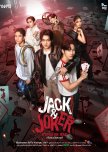
YinWar’s tour de force
This has been a roller-coaster ride and I enjoyed it immensely. Since I went for a non-spoiler review, I’ll focus on issues that are not plot-revealing. I thank YWPB (which stands for a company established by Yin, War, Prom and Bonz) for this gem of a BL, this brainchild of theirs and wish us all more shows like that.Let’s start with the script. If you go to the MDL comment section (which I don’t advise) you’ll see that the script of J&J received criticism from various angles and positions - for what’s in it as well for what’s not in it/what’s (supposedly) missing. Was I fully satisfied with the script? No. Did it matter to me? No. I enjoyed the show despite of things I myself might consider script-related. Without going into detail: I appreciate many things included in the script or resulting from its execution, like character development (and character consistency), plot twists and revelations, mostly successful attempts to combine serious issues with comedy, as well as some general ideas spanning across the series, like involvement in criminal activity and dealing with it or various aspects of social injustice.
The story is not short on crazy, which I also enjoyed: it’s often a metaphor and a fairy tale with larger-than-life villains, brave heroes willing to sacrifice themselves, artifacts, powerful symbols and some good old mysticism, bordering on magic.
I also liked that – in many cases – the story isn’t straightforward; there are nuances, tweaks, not everything is as it appears, not everything is resolved as one would want and some issues remain unresolved entirely.
All of that, however, is but a canvas for the main plot: a story about the titular characters, their journey – sometimes together, sometimes separately. Side note: I find it safer when a show is named after the main characters. Other names often lead to confusion (see “Hidden Agenda” with a not-so-hidden agenda which became unimportant halfway through the series, or “Dangerous Romance”, which was not dangerous at all); “Jack & Joker” is a great title (“U Steal My Heart” – also very good and to the point). As this series has faced plenty of criticism for that too, let me list the following:
1/ this is most definitely a BL, not a bromance,
2/ the main characters are portrayed by Yin and War only, not by other cast members (sorry PromMark fans),
3/ the show is first and foremost about Jack and Joker, not about side characters,
4/ Jack and Joker are, at the same time, the main characters and the main couple – the series is about them as individual characters (hence it’s not just them spending all on-screen time together) as well as about their relationship.
The above are not just features of this show, they are also creative choices made by the producers and I agree with them.
The show’s music deserves at least a brief mention. The three main songs are very distinct and very good. “แค่ยัง…(มีเธอ)” by Tattoo Colour perfectly illustrates the action aspect of the show, “ทำไมต้องเป็นเธอ” by Dome Jaruwat is the romantic theme of the series, while War’s “ร้อยวิธี” is a love letter drowning in tears and the emotional core of the soundtrack. A special mention goes to the opening credits theme and it’s dark rendition used at the end of ep. 5. What did surprise me a little about the score was that Bonz was not it’s composer (as an actual musician he’s more than qualified for that) and that Prom (another cast and crew member perfectly capable of doing that) did not perform any part of it.
The shows biggest asset is the cast. It’s core is mostly young, consisting of YWPB and their friends, associates and frequent cooperators, first and foremost Mark Siwat. This core team was bolstered by seasoned and experienced artists, including GMMTV’s own Jennie Panhan. However, the show was on another level due to what YinWar did to it and in it. You’ll find it in most of my BL reviews and I keep repeating it: a good ship will save a BL while the lack of chemistry will doom it every time, regardless of how good other elements of the show are. Thailand has several top tier ships; YinWar are a powerhouse among them – that’s basically the stuff dreams are made of. Both actors have grown, matured and honed their talents to hijack our imaginations on that crazy roller-coaster ride I mentioned at the start of the review. Both are superb and outperform the rest of a very good cast; War, in particular, shines with his versatility, and both he and Yin are visibly enjoying themselves. Their powerful performances and chemistry elevated the story, covering for all of its flaws, plot holes etc. I have not seen this level of acting in a BL before – simply amazing.
Engaging, emotional, ambitious and very well acted, “Jack & Joker” is the best BL I’ve ever seen.
Was this review helpful to you?

This review may contain spoilers
2nd review - after seeing all 10 episodes
This is my 2nd review of ATOTS; I posted the 1st one after ep. 1 aired (see below) and gave the series an overall rating of 7.0 (story 7.0, acting/cast 6.0, music 8.5, rewatch value 7.0) – I also made 2 “awful predictions”, none of which came true (for which I’m very grateful). Rating the series now, after watching all episodes (and rewatching ep. 10 multiple times) I gave it a higher score – the story is still lacking, but turned out to be okay (see more detailed remarks below for what I didn’t like about the script), the music is less diverse than I thought it’ll be and the whole show rests firmly on shoulders of Mix and Earth – hence I increased the score for acting and rewatch value.WHAT I LIKED
1/ Most of the script is good. Setting the show out of Bangkok – great. I enjoyed everything connected with Tian finding his way in a new surrounding – as a volunteer teacher, a fish out of water character, someone who needs to learn the basics of life. I liked even more that the script didn’t stop there: Tian learns how to gain the trust of villagers, reacts to injustice, helps the village and makes enemies in the process. Becoming responsible for others – first the children, later the village – suits him well (I wish we’d see Tian acting in this capacity towards Phupha, even briefly – just to reverse what we got in the show for a moment).
2/ EarthMix. They shaped the dynamic of Tian and Phupha, making both characters very likeable and their story – our story. Their chemistry is insane – probably due to the fact that Mix and Earth have known each other for 7 years. Where the script is lacking – EarthMix carry the story. Countless tears I shed watching ep. 8, 9 and especially 10 are not the only proof of how good EarthMix works – they generated tension, emotion and drama lifting a slightly underwritten story to the much desired tearjerker master level. “The feels are real” and even their argument in ep. 9 was handled in a great way. But Earth and Mix were even better at creating joy and satisfaction, teasing each other and banter – which was showing throughout the whole series and was highlighted by the last 10 minutes of ep. 10.
3/ Earth. Didn’t like his acting initially (truth be told ep. 1 was his weakest), but now I think he did a good job of portraying an ex-soldier who hides behind an image of a reserved, strong, armed man in a uniform, believing in discipline, obedience, duty, rank and hierarchy. Seeing Phupha turn into a cute cuddly hunk madly in love with the volunteer teacher was a delight.
4/ Mix. Tian is mostly Mix, right? All the quirks, humor, mischievousness, frolics and banter – that’s Mix and I loved every bit of that. At times he’s frightened, unsure, vulnerable and fragile, but also brave, defiant, committed, stubborn and jealous. He’s a complete, 3D character. I enjoyed his self-confidence, especially in the last episode; it wasn’t vanity nor arrogance, but true strength. I commented elsewhere how much I liked the hilltop scene when Phupha embraces Tian’s waist; this wasn’t a sign of taking possession – Tian was actually in control, beaming with confidence, casually leaning on Phupha. Our young adult displayed more maturity later – the whole sleeping together scene was written the way it should have been, with request for consent from Phupha and Tian giving consent. Very well done, even if it’s partly played for laughs, to lighten the tone of the finale. Mix shined in ATOTS and I hope to see more of that in future projects of his.
MY COMPLAINTS
1/ Unnecessary Torfun and heart transplant. What was the point of all that? Was that a plot device to get Tian to the village? If so – it’s not relatable nor believable. We got (despite one of my “ugly predictions”) an explicit confirmation that Tian was gay and his feelings for Phupha were his own – they did not stem from him receiving Torfun’s heart. The metaphysics (like Torfun appearing in Tian’s dream and replacing his reflection in a window pane) ended before it really started. Tian feeling guilty for Torfun’s death – even Phupha and the villagers forgot about that within one episode, which says something about our main character’s motivation. I get that Torfun and the transplant were in the novel, but I’m not reviewing the novel; the series is an independent piece of art and needs to stand on its own. And in the series a lot of things would make much more sense than the whole Torfun and her heart bit. What made me even more displeased with that aspect of the story was how it was revealed – one piece at a time, leading some (me included) to assume (in ep. 1) and to believe (in later episodes) that Tian was the one who killed Torfun (in that case his desire to replace Torfun, complete her work etc. would make much more sense). Nothing came out of that, no dark secret (hinted for several episodes) was revealed, Tian was innocent and plagued by (in my opinion) baseless guilt.
2/ Little to no character arcs. Phupha’s “character arc”: starts as someone who hides feelings, falls in love with a city boy, admits his feelings with greatest difficulty and changes into a living human being for the last 5 minutes of the show. Tian’s “character arc”: starts as a bored rich kid, goes to village where we find out he’s actually resourceful, kind, fair, strong-willed, caring and gay, goes back home after his boyfriend tells him to and becomes a bored rich kid again. Obviously I’m exaggerating for dramatic effect, but what struck me was that no one who knew the “old”, pre-transplant Tian, noticed any difference once he returned home. Not Tul, not his parents, not anyone else (I’m not including the audience here – we saw this version of Tian for mere minutes). But maybe I got it all wrong, maybe this wasn’t about Tian having a character arc (=changing), but about him discovering what he’s capable of – a voyage of self-discovery which pushed him to drop out of engineering school (wonder if it was the same that Tonhon attended) and pursue a career in teaching.
3/ Tian’s parents and the 2 years in the US. Remember ep. 1 and Tian running away from home? Back then his parents didn’t seem to be an obstacle for him doing what he wanted. How come they became an obstacle in ep. 9? It was solely due to their insistence that Tian had to return home and later to go to America. 2 years passed and Tian – again – was free to do what he wanted, including returning to the village? Seriously? Was there no other and more convincing way of splitting Tian and Phupha to generate drama, to have the audience sob and weep during the airport scene? What did Tian’s stay in the US change, what did it solve? What was the point of creating a no-problem issue, making it an issue, blowing it out of proportion and then “solving” it off-screen by skipping 2 years? That’s some very lazy writing from beginning to finish. You either make the parents a genuine threat to Tian’s freedom (like making him dependent on them, having to obey them) or forget about the parents and introduce a real problem our mains would have to solve (on-screen – this is a TV series, you need to show us stuff) to be/stay together.
4/ Friends underused. Tul and Longtae could have played a more important role in the story. My idea: cut the Torfun stuff entirely and give her screen time to Tul and Longtae, who could do what Nam, Rang and Yod did for Phupha. Make Tian a truly arrogant and obnoxious spoiled rich kid (Tul would be the one to notice Tian’s change) who goes to the village for a compulsory internship and discovers there’s more to life and to himself than he thought. The series would still be 10 episodes long and would still focus on Tian and Phupha becoming a couple, but without the whole guilt thing.
===========================
1st review (which most if not all comments are about):
What I like about episode 1? That it partly takes place in a new setting. We still see a lot of big city scenery (as well as an exterior shot of a nice modern house used as Tonhon’s parent’s house in “Tonhon Chonlatee”), but the action seems to be slowly moving away from the city and into the country. Oh, seeing Drake was also nice (no Khaotung in episode 1? too bad). The rest… Well, Mix and White were okay, but Earth has the acting range of a wooden board. Also let me make some awful predictions – basing on what I could guess from both trailers (including the first one, released on 15.10.2019 and still available on GMMTV’s YouTube channel, which used completely different takes, shots, scenes and even costumes than the second one, released on 07.01.2021; I assume they produced the 1st trailer prior to filming the series), foreshadowing as well as gaps in the story presented so far:
1/ Tian will fall in love with Phupha because Torfun’s heart is now beating in his chest, which is a new take on the heavily criticized “I’m not gay, I just love you” approach (Dear writers, please do at least this bit right and make the two main characters fall for each other without any convoluted "explanations" and "reasons"),
2/ we’ll find out that Tian did race after he left the casino (in episode 1 we are led to believe he was hospitalised after collapsing at the casino) and that Torfun was killed during that race (why do I think so? cause Phupha already declared that he will never forgive the person who hit Torfun – that’s ideal for some drama which will become necessary around, let’s say, episode 7 or 8, when Tian’s and Phupha’s relationship will become unbearably blissful).
At least we should see more of Thailand’s beauty in future episodes (instead of Bangkok and some more of Bangkok) - that always good.
Was this review helpful to you?

This review may contain spoilers
Jojo's heartless shlock
Whenever I see "Jojo" Tichakorn Phukhaotong’s name attached to a project as a director or screenwriter – I worry. When it was announced that Jojo will both write and direct "The Heart Killers" I was worried sick – not just because I sensed a repeat of the worst aspects of "Only Friends" but also because I really like First, Khaotung, Joong and Dunk. Initially I thought that – when it comes to acting – FirstKhao will eclipse (pun intended) the much weaker JoongDunk. Apparently I did not learn my lesson from the abovementioned "Only Friends".THK has a very interesting plot: two actual killers become romantically involved with people who need or want to bring them down, but later fall for them – and the aftermath of all that. On paper – it’s dynamite with great dramatic potential. Such a plot can be developed into a script for a fiery romance or a heartbreaking story about love, betrayal and (possibly) redemption or a morality play about crime, love and punishment or a tragic tale of desire, passion, anger and jealousy with no happy end. So many options to choose from. Shame Jojo didn’t go for any of them.
The script we got was little more than a pretext for stuffing the show with as much nudity and pretended sex scenes as possible. No wonder the writing is weak, characters are shallow, unrelatable and at times unlikeable, emotions are mostly absent, stakes are non-existent (THK has the least intimidating villains I’ve seen in any show) and the script generally makes little sense (two multiple killers get only 5 years in prison instead of spending the rest of their lives on death row; their boyfriends visit them regularly to have sex; Bison singlehandedly beats up 3 inmates etc. etc.). On the other hand we get plenty of eye candy, as Jojo’s mission – since at least "Only Friends" – seems to be "spicing up" BLs. I even had a theory about that; it went like this: Jojo – an openly gay creator – was fed up with the often sterile and non-sexual BLs and decided to offer audiences a more realistic view of male intimacy. This coincided with GMMTV facing stronger competition from Domundi and other companies, which recognized that at least part of the audience will be in for "mature" content – even if it’s pure clickbait and no substance (like "Bed Friend"). Jojo got his opportunity and used it – that’s how "Only Friends" got made. To be clear: I’m not blaming Jojo for wanting to get BLs more realistic and adding some of what they were missing (male intimacy and sex). However, Jojo overdid it – not just focusing almost exclusively on that one aspect, but also reducing all depicted relationships to it. As a result "Only Friends" had no likeable characters – everyone was either whiny and slutty, cold and slutty or weird and slutty. Nothing against including slutty characters, but – like with everything – overdoing it was a bad idea.
Similar thing happened with THK: almost all of the emotional scenes and moments fall flat, action scenes are unrealistic and used as filler, while the only scenes that seem important are those where the main characters are kissing, shirtless or almost completely nude. Even those scenes, however, suffer from the mostly tacky, phony aesthetic and frequent lack of emotion or tension. There are some exceptions, but the majority of what this show offers is either uninteresting, banal or outright boring.
This may seem unrelated, but the setting of most of the series weirdly matched the above: the show’s world seemed empty, with hardly anyone there – save for the characters. The most populated area – the bowling alley – was nearly deserted in every scene, with a few people other than the main cast present. Other locations were almost devoid of extras – empty stores, hotels, office spaces, restaurants etc.; even Fadel’s and Bison’s burger joint was usually empty. The few self-help group scenes were a good example of that: a huge sports hall, empty and dark, with a handful of people sitting in a circle. No idea if this was a creative choice or an attempt to limit production costs, but it looked very strange; where is everybody – I kept asking myself.
I was surprised by how weak the performances were. I’ll repeat myself saying that I really like FirstKhao and JoongDunk. I’m also aware that Dunk has no acting skills – he’s just a pretty face, privately seems to be a nice and good guy, and he has good chemistry with Joong, both on and off-screen. And – as mentioned before – I was having some hopes regarding First (I liked his performance in "The Eclipse" a lot) and Khaotung (loved him in "The Eclipse", but also in "Tonhon Chonlatee" and "Moonlight Chicken"). Unfortunately the entire main cast gave very disappointing performances. Dunk’s was by far the worst in his career, with dreadful delivery, missing every beat he could, often so badly that it wasn’t even funny. I was not "so bad that it’s good" – it was simply very bad. Joong seemed uninspired, sometimes lost and confused, regaining his charisma and spark only few times; some of that might be blamed on the script and direction (or lack of it), but Joong – whom I’ve seen actually acting in other shows – is just not doing his best. As for First and Khaotung, they shared some cute, intimate and even touching moments, but their performances were below average for most part. Khaotung’s over-the-top acting might have been deliberate – to showcase that Bison is a little unhinged – but felt cringy and embarrassing.
No idea if THK was supposed to convey a message, if the audience was meant to learn anything from it, if there was a point to it – for me it was another of Jojo’s attempts to produce a show with attractive young men as main content. An attempt as successful as it is pointless.
Was this review helpful to you?

Hell, no!
A nightmarish fever dream of a BL, "Even Sun" has me confused even now. What was that, what was is supposed to be, who greenlit this project and why were BounPrem pulled into this mess?The main plot (once you get to the final episode) makes sense and there even is more than one story told in this show (or a fragmented story if you will). However, someone forgot to prepare an actual script – one that would make sense – and they filmed the show without it. I saw some BTS footage and noticed something resembling a script held by the director or someone from the crew – I’m pretty convinced most pages were blank.
Dreadful and/or absent writing isn’t the show’s only problem – it’s complemented by awful performances. To be fair here, I assume that those performances resulted from lack of script and direction – cast members felt like they were left to their own devices, wondering the sets aimlessly. Some seemed genuinely confused by this production they were a part of, while others tried to adjust to it. Sadly, Prem was lost to the madness of "Even Sun", attuning to it and giving an almost incomprehensible performance. It’s Prem, so it’s still watchable, but I wasn’t amused nor entertained. Boun tries to fight the nightmare by surrounding himself – and, by extension, his character – with a bubble of impenetrable coolness. This works most of the time and Boun leaves "Even Sun" generally unscathed, with only slightly tarnished reputation. I won’t dwell on other cast members nor their performances, as they are either no-names or performers known to appear in horrible shows.
Imagine Boun, all angelic and ageless, with stunningly beautiful Prem, this time orange-haired, strolling on a pristine beach at sunset. Sounds great, doesn’t it? "Even Sun" has visuals like that and more – but has nothing else of value. A proud bounpremsexual, I’m left disappointed and sad – but also cherishing the thought of much better shows by the duo.
Was this review helpful to you?

This review may contain spoilers
Welcome to the island
1/ JojoTo get this thing out of the way first: I’m not a fan of Jojo’s work. I was critical of "Only Friends" and still consider "Never Let Me Go" as well as "The Heart Killers" to be among the very worst GMMTV releases. This time, however, I have to applaud Jojo’s work; "That Summer" is by far my favorite of Jojo-made shows, with none of the schlock that annoyed me before. This time we got decent cinematography featuring a wonderful island setting and two beautiful gay couples, mostly good writing and Winny's show-carrying performance. Nicely done, sir.
2/ Plot and writing
Loved the plot – which, by the way, is not about a prince and a commoner falling in love, but about an amnesiac and the guy who saved him falling in love. The story writing is consistent and – with the exception of ep. 10 – pretty even; Jojo and Zaii mostly did a good job in this regard. Some of the writing choices I applaud include: (1) it's not a story about politics (even though it features local elections and a failed coup), (2) it’s not an "enemies to lovers" story either, (3) keeping the Arantha part of the story minimal, (4) Wave and Davin being – up to a point – separate and different characters (however the show could have done more with it). It’s not a "summer love" kind of love story either, and – after considering it for a while – I think it’s good that way. Getting reminded that all of this is fleeting and temporary, that things will return to "normal" after a while (once Wave regains his memories, Lava ends his stay on the island and returns home) etc. would have hovered over the show like a dark cloud, preventing me from enjoying it.
While the story progresses nicely from ep. 1 to ep. 9, I’m not sure why ep. 10 was so different – as if Jojo and Zaii didn’t know how to end the main plotline. It’s not like they have written themselves into a corner and couldn’t find a good way out – there are shows out there with this problem, but "That Summer" isn’t one of them. We got an "end of summer" with a shoe-horned, last-minute attempt to create tension or cast doubt that there will be a happy ending. It was pointless, just like the time jump – a fatal trademark of GMMTV shows. With minimal tweaks to its script ep. 10 could tell a story of Lava and Davin parting ways for real – there was so much put into this episode as obstacles for their relationship. The most annoying part was that once Davin told his parents he’s gay and doesn’t want the throne, everyone was okay with it. If so, what was the point of all that talk of returning to pre-island life, royal obligations, forced secrecy, living an unwanted life build on a lie etc.? Storywise it made no sense for Davin waiting one whole year to have that important talk with his parents. The whole ep. 10 Arantha part of the main story should have either (1) been expanded and come in ep. 8 or 9, to present an actual obstacle for Lava and Wave being together, a problem for them to solve and to create real stakes, or (2) been dropped entirely, getting dealt with off camera or with one scene in ep. 10. We got neither of that and most of ep. 10 was wasted on a non-problem.
As for characters, I liked how Lava was written, with solid background and good characterization. He’s unapologetically gay – one can clearly see Jojo’s hand here – and I loved it. Lava doesn’t have a full arc, but does mature during his stay at Peng’s, primarily due to his love for Wave. When he faces Davin in Arantha, Lava is a calmer, more collected version of himself; he also switches from stubborn to patient, which lets him wait for Davin once they part ways. That’s character development I like to see.
As for Peng, I understand his hesitation to come out and reveal he’s Wut’s boyfriend – that part of his character, as well as his at times strained relationship with Wut, was well written. What I don’t get about Peng is his attitude towards Lava. Throughout the entire series he’s overly critical of his nephew, complaining about everything Lava does; this doesn’t change a bit even in ep. 10. There’s no development nor progression, but also no explanation of why Peng would stay like that even after everything that happened to him and Lava in the show. Was Peng supposed to be a replacement for a strict parent or teacher or different figure of authority for Lava to oppose and rebel against? That could make sense if Lava actually was rebellious – which wasn’t the case.
My biggest complaint when it comes to characters regards Wave/Davin. He’s not a damsel in distress, but he’s not a fighter nor rebel either. It might be my bias, but I expected Lava and Wave having a different dynamic, resembling the Sound-Win relationship from MSP. With Wave being far softer that Sound this couldn’t happen. What almost ruined this character for me was ep. 10, which showed Davin as an undecided, timid pushover, scared to stand up for himself, to be honest with Lava and his parents, even when directly offered an opportunity to clear the air or given time to work on his parents (he literally did nothing for one whole year).
3/ Cast
After MSP Winny didn’t really get a chance to shine – the "Our Skyy 2" special was good, but his other appearances, especially in "We Are", were subpar. Fortunately we got none of this here; Winny’s performance in "That Summer" is by far his best. Lava seems like a part written specifically for the young actor and Winny played it beautifully – carrying the show and throwing in some surprises. Lava helping Wave after he got high in ep. 2 might be my favorite Winny scene ever; he nailed the delivery being warm, soft and reassuring – displaying features unusual for characters he portrayed thus far. Also, I enjoyed his performance of the title song "สายลมกับเกลียวคลื่น" ("Wind and Wave"). My only – and very minor – complaint is that in a scene or two Winny’s delivery was almost monotone, as if he lacked proper direction and didn’t know how to act; this shows that there’s still room for improvement when it comes to Winny’s skill.
I like Satang’s performance as it saved Wave/Davin for me. When the script wasn’t doing the character justice, Satang helped a lot, portraying Wave as confident or sickly-sweet and sassy. If I had to guess I’d say Satang followed his instincts on this one and was not lead astray.
Other cast members – who included some long time GMMTV employees like Sing, Thor and Gawin – gave serviceable performances. The supporting cast included Neo and his real-life girlfriend Mint as the only opposite-sex couple and Mond paired with Ryu. That couple initially surprised me, as the last time I saw Ryu paired with a guy was in 2024’s "Summer Night", where he portrayed a high schooler and Java’s boyfriend. Here he’s more his actual age and portrays a doctor – calm and responsible. Even if the character seems a bit boring, Ryu and Mond look good together and do what a supporting couple should do. Despite my reservations about how his part was written, I liked Mond’s portrayal of Peng; he brought some badly needed warmth to the character, with his big smile and goo-goo eyes.
4/ Final thoughts
All in all "That Summer" mostly works well. WinnySatang finally got a show for their own ("We Are" was more like a PondPhuwin + friends show) and did their best: the chemistry is there, the banter is there and they look great together. "That Summer" confirmed that this ship works well and can be entrusted with a BL, doing a better job than some other ships in the company's employ; hope GMMTV was paying attention.
Was this review helpful to you?












